Taking the Mat to the Mountain
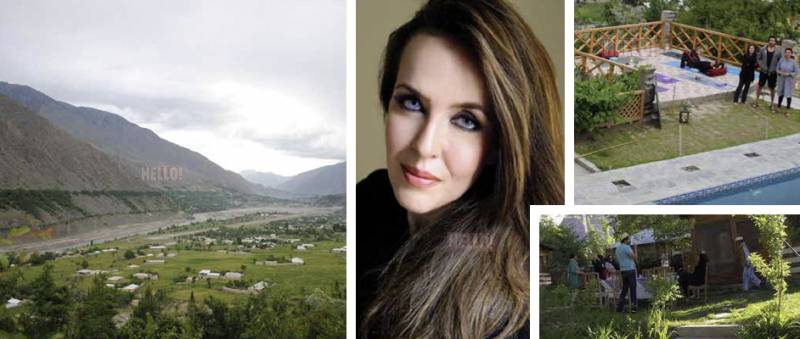
How do you describe your practice and what you teach?
My practice is based on the traditional Ashtanga Vinyasa style of yoga. My classes cultivate the art of linking breath with movement, focusing on awareness within each Asana and encouraging students to journey inwards, allowing each practice to be led by the heart. My teaching comes from a deep belief in the transformational power of dedicated and consistent practice.
Please describe your journey to yoga: Why do you devote your life to this practice, and how has it changed you?
My yoga journey began in London when I was expecting my first child and teaching young children at a Montessori nursery school. I can’t recall it being a conscious decision to start – I was drawn to it pretty much after the first practice. I didn’t know why, I just followed the feeling. After my very
first class, I found myself walking down from Fulham to Parsons Green every evening to make it in time for a prenatal class that was being offered at the time. I gradually started to explore Ashtanga Vinyasa as a way to connect mind and body through Asana and meditation practice. As my journey evolved, I decided to become a full time practitioner of the Ashtanga Vinyasa method with the intention of sharing my passion for yoga with others. I went on to do my first training in London and subsequently travelled to Thailand to further deepen my practice. I now continue to teach in Islamabad and (for this year mainly) in my ancestral home, Chitral. Today, I feel yoga is at the heart of how I am and how I experience the world. It is for me, much more than a fitness regime but a holistic way of life.
Tell us some more about your training? Who are some of the teachers that really inspire you?
I have practiced with and been taught by some of the most inspiring teachers; Rory Trollen, Jamie and Dulce, James French, Stewart Gilchrist – I could go on about the people who have inspired me through my journey but if you would like to know about my one guru/mentor – that is my father. I continue to learn from him every day.
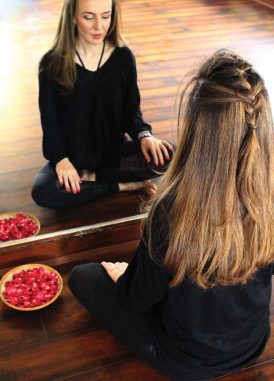
What is your definition of fitness?
Although a regular Ashtanga practice makes you lean and strong on a physical level; that is not the sole aim of yoga. It is not about what a pose looks like but more about the quality of your breath and how you feel in a certain pose. This is the reason most present day yoga classes are moving away from facing the mirror, in order for people to not get attached to the idea of how they are looking in a pose but rather to be more present with their internal drishti – that internal gaze/ focus. It is more about allowing that union between mind, body and breath to take place. In a yoga class, I would say a person is getting ‘fit’ when they are able to quiet the noise that the mind creates and when they are truly able to unplug from that noise beginning to flow from Asana to Asana as a moving meditation. There is no better feeling than the post yoga sensation of ‘floating’ out of class in mauna/silence.
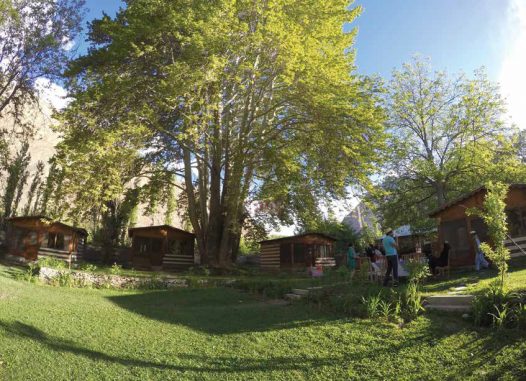
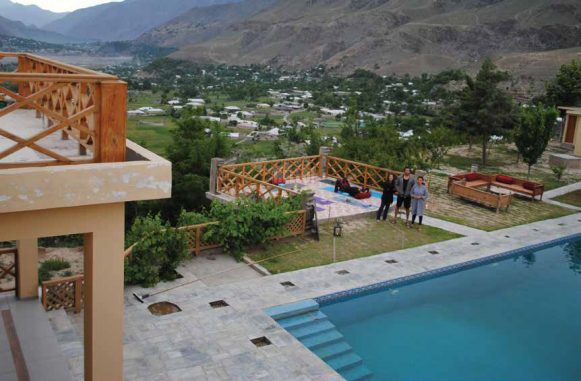
What’s your definition of healing? What facilitates the process?
Each of us have stagnant energy within the body and with the help of our yoga practice we can unblock that stagnant energy, enabling it to circulate within the body hence making you feel uplifted, open to new experiences, clarity of the mind and feeling an expansion in the heart centre. There have been times when my students have talked to me about how they begin to feel an appreciation for themselves, a connectedness which they had lost, some have even said they have felt inspired to do things they always wanted to but something held them back. This is the ‘shift’ that’s talked about. Being able to help people heal and empower themselves in this way is what makes what I do so rewarding.
What is the primary lesson you aim to impart to your clients?
Traditonal Ashtanga Vinyasa is a relatively new concept in Islamabad – over time people will begin to understand this practice as so much more than a stretching session once a week to rid themselves of stiffness from a regular gym workout. That this a daily practice of discipline and commitment above all else. Yoga is not only for flexible people, in fact the flexibility comes as a result of doing. It comes as a result of making your way to the mat regularly with intense discipline and being able to find joy in your practice. One of my favourite quotes is to: ‘Let your practice be a celebration of life.’ Embrace it whole heartedly and you will see how it will bring a sense of wholeness to your life.
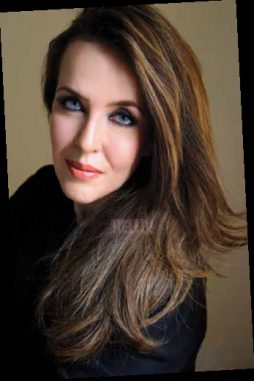
What makes you stand out from the rest of the crowd?
I try to impart in my teaching that the real yoga takes place off the mat; when we are able to integrate our intention for the class into our life in general. If our intention at the beginning of a class is to practice nonattachment, I encourage my students to take that intention of the mat and apply it by gradually letting go of attachments in their daily life.
Do you agree that the conversation concerning yoga and body image is not about overweight versus skinny? Tell us more.
Yoga is not concerned with body image and weight. It is for everyone. In my opinion, if you can breathe then you can do yoga. It is very much about the practice of Pratyahara i.e. withdrawal of the senses from external stimuli.
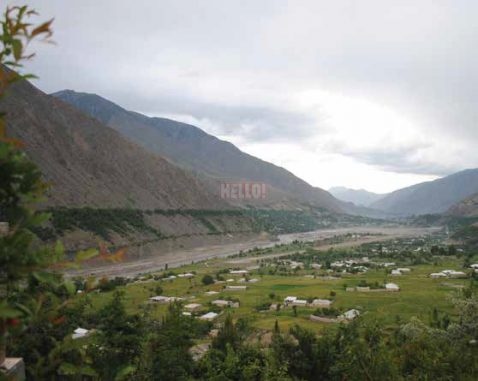
Tell us more about your yoga retreats in Chitral and how you made it happen?
On a purely personal level, my retreats in Chitral have brought about a wholeness to my practice. Being able to bring my love for the mountains together with my love for yoga has been a hugely rewarding experience. The mountains have a profound effect on me and I see the retreats as an opportunity for me to bring nature into my teaching. It is a hugely different experience doing sun salutations in my yoga studio in Islamabad than it is to be able to surrender to nature surrounded and protected by the mountains – the stars shining above you as you reach Savasana – the final relaxation. With each class being a journey, Savasana being the end of the journey – magical.
Talk to us about the future. What do the next five years look like for you?
Although I have no set plan – the general idea is to continue to learn, to grow and to evolve with my students. You never really learn yoga – rather, it is a life-long journey of transformation, self-discovery and healing. My idea of a perfect holiday is to go for further trainings – yes, you can actually get ‘attached’ to the practice itself.
TESTIMONIAL
‘It’s not just exercise to detox, not just a label of human architectural sculptural form we reduce to a mere word ‘yoga.’ It’s a movement. It’s another country. An elegantly scripted introduction to oneself at heaven’s gate, in the highly charged mountains of Chitral, with the otherworldly, earthed, angelic, beautiful Mehnaz Ulmulk. Time to reflect, absorb, apply, live, see. Till the dialogue reconnects again. With a humble head to the ground and thankful gratitude for the last five days of bliss, a refreshing new spin on the term ‘wellness retreat’ based around the creature comforts provided effortlessly and invisibly with no interruption by the superb team led by Siraj Ulmulk at The Hindukush Heights Hotel, Chitral. Whether you are a yogi or not, this is an experience you must live. At least once. Worth every minute. Every moment. Away from what you have come to believe is important in life. It’s not. It has a place. That’s all. This, for a debut into a new language, has made me find another side of me, which I’d like to discover more. You, too, can do this. This conversation, on a pregnant pause at the moment, will continue…’
- Zain Mustafa, Karachi based architect. Retreat student, 2017
When asked,
Two yoga poses you love
Balasana (Child’s Pose) and Buddha Konasana (Bound Angle Pose)
The first thing you eat/drink when you wake up
Warm water with lemon
A yoga of fitness tip you swear by
Your breath is your best teacher
Your yoga mantra
Release the need to control what goes on in your life, having faith in a greater plan.
Favourite quote
‘You are always a student, never a master. You have to keep moving forward.’ -- Conrad Hall
Interview: Amna R. Ali
Photos: Courtesy Sam Chinoy, Zulfikar Ali & Ruqayya Rizwan
- Tags: Chitral, fitness, health, Mehnaz Ulmulk, Wellness, Yoga, Yoga Instructor, Yogi
